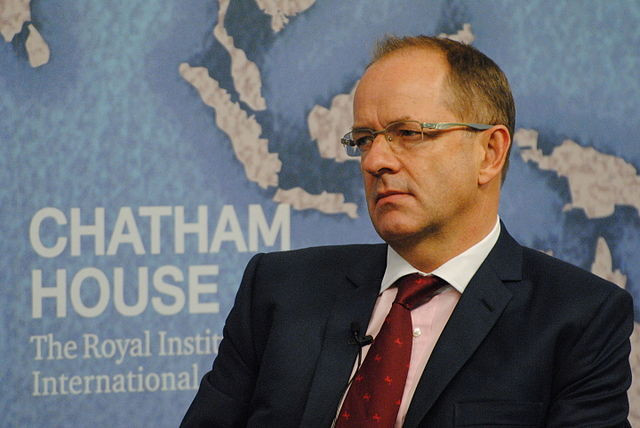UnitedHealth Group CEO Andrew Witty, in his first public comments since the fatal shooting of Brian Thompson, acknowledged the flaws in the U.S. healthcare system while paying tribute to his late colleague. Thompson, who led UnitedHealthcare, the largest private insurer in the U.S., was killed on December 4 in midtown Manhattan, a tragedy that has amplified frustrations over the state of healthcare.
In an op-ed published in The New York Times on Friday, Witty lamented the "enormous outpouring of support" for Thompson's family while also addressing the vitriol directed at the insurance industry following the killing. "No employees - be they the people who answer customer calls or nurses who visit patients in their homes-should have to fear for their and their loved ones' safety," he wrote.
Thompson, 48, was fatally shot outside a Hilton hotel as he prepared to attend UnitedHealth Group's investor day. Investigators have accused 26-year-old Luigi Mangione of the crime, describing him as a critic of the healthcare industry. While the New York Police Department has stated there is no evidence Mangione was a UnitedHealthcare client, officials believe the company's prominence as the nation's largest insurer may have made it a target.
Witty's remarks come amid heightened scrutiny of the healthcare system, which many Americans view as burdensome and opaque. "We know the health system does not work as well as it should, and we understand people's frustrations with it. No one would design a system like the one we have. And no one did. It's a patchwork built over decades," Witty wrote.
The CEO highlighted UnitedHealth's willingness to collaborate with stakeholders to improve the system. "We are willing to partner with anyone - healthcare providers, employers, patients, pharmaceutical companies, governments, and others-to find ways to deliver high-quality care and lower costs," he said.
The murder has intensified public criticism of health insurers, which are often blamed for rising premiums, denied claims, and unexpected medical bills. Social media has been inundated with stories from patients sharing negative experiences with insurance companies. Witty acknowledged UnitedHealth's role in these challenges, stating, "We share some of the responsibility for that."
Healthcare costs remain a pressing issue for Americans. According to a 2024 survey by KFF, a majority of adults worry about their ability to afford medical expenses. Insurers have faced increasing pressure to address these concerns, particularly as companies deal with higher medical costs stemming from procedures delayed during the COVID-19 pandemic.
Despite the criticisms, Witty defended the company's efforts to base coverage decisions on clinical evidence. Behind certain claims decisions "lies a comprehensive and continually updated body of clinical evidence focused on achieving the best health outcomes and ensuring patient safety," he said.
Witty also paid a heartfelt tribute to Thompson, recounting his upbringing in rural Iowa and his commitment to improving care. "When a colleague proposed a new idea to Brian, he would always ask, 'Would you want this for your own family?' If not, end of discussion," Witty wrote. He described Thompson as someone deeply connected to the needs of ordinary Americans, shaped by his roots in the small farming town of Jewell, Iowa.
The tragedy has raised questions about the safety of corporate executives in an era of increasing public anger toward major institutions. In the wake of Thompson's death, UnitedHealth employees have reportedly faced threats and harassment online. Witty condemned such behavior while reaffirming the company's mission to improve the healthcare system.
As UnitedHealth navigates the aftermath of this tragedy, the company's leadership faces renewed calls to address systemic issues plaguing the industry. Witty's acknowledgment of the system's flaws and his pledge to work toward reform signal a potential shift, though the specifics of any proposed changes remain unclear.






